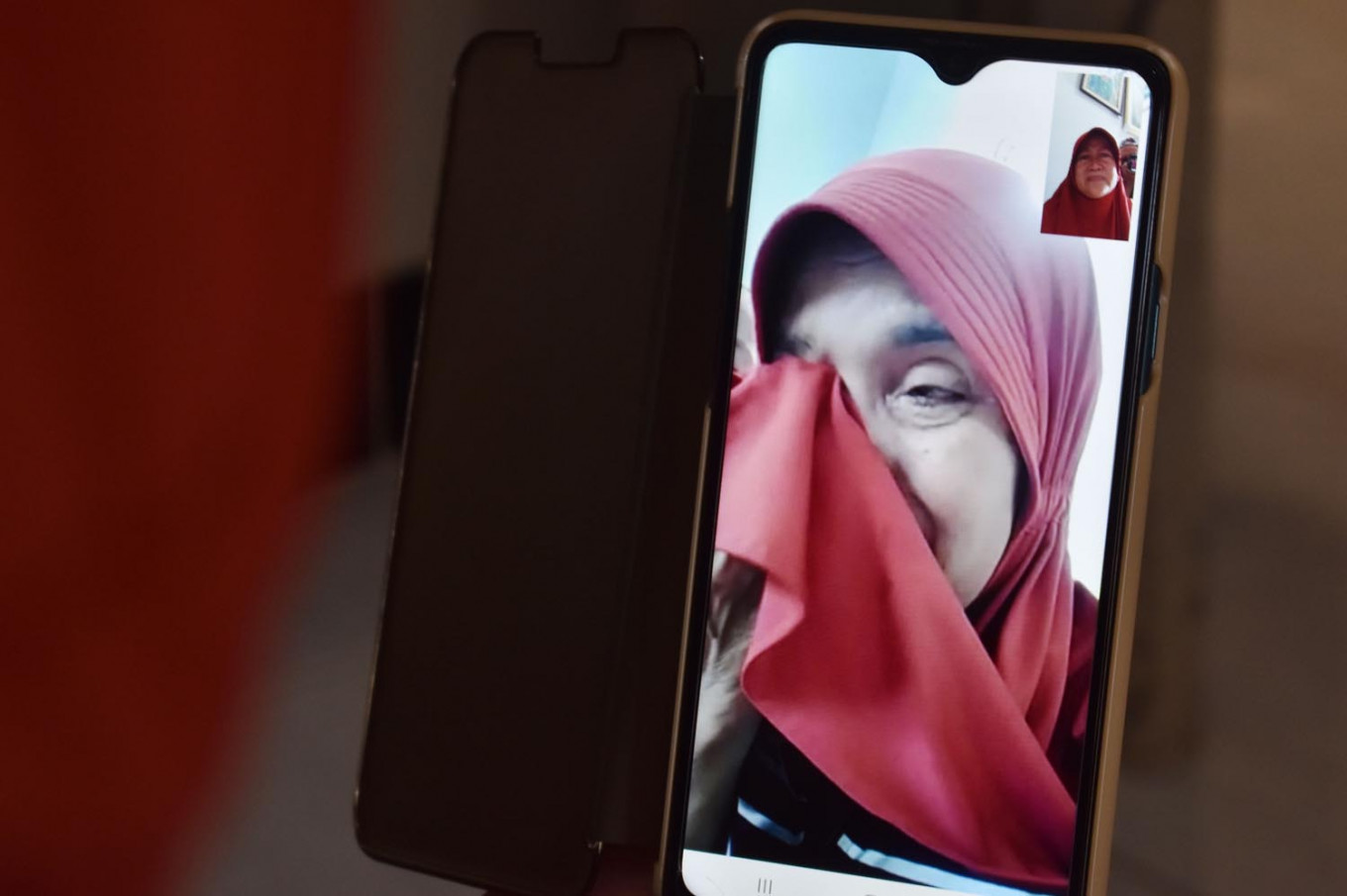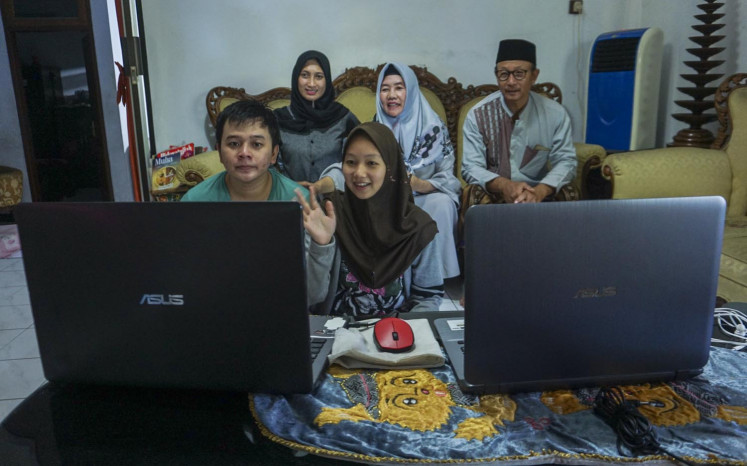Popular Reads
Top Results
Can't find what you're looking for?
View all search resultsPopular Reads
Top Results
Can't find what you're looking for?
View all search resultsEid in time of pandemic: Quiet and lonely but modest and solemn
Mass prayers, big family gatherings and banquets fit for a king. In any other year, this would be the norm for Idul Fitri celebrations across Indonesia. But not this year.
Change text size
Gift Premium Articles
to Anyone
M
ass prayers, big family gatherings and banquets fit for a king. In any other year, this would be the norm for Idul Fitri celebrations in Indonesia, home to world's largest Muslim population. This year, however, the silaturahmi (communal bonds) tradition of gathering with relatives during the annual holiday was carried out virtually under large-scale social restrictions to contain the spread of COVID-19.
For Adhytia Pahlawan, a 26-year-old who started his job in Jakarta in September last year, this year marked the first time he celebrated Idul Fitri away from his family in Lumajang, East Java.
“I could only keep the silaturahmi through video call. My mother really wanted me to be home as she misses me, but the situation does not allow me to,” he told The Jakarta Post on Monday.
Adhytia said although he felt somewhat isolated and longed for his family’s company, he wanted to comply with the government’s ban on mudik (exodus), which prevents Indonesians from traveling to their hometowns for the holiday. For him, not going home was the best option, as he did not want to risk getting his loved ones sick.
To abide by physical distancing rules, regional leaders across the country held digital open house events during Idul Fitri celebrations. Central Java Governor Ganjar Pranowo greeted people using Zoom and interacted with his constituents on Facebook, Instagram and YouTube on Sunday. West Java Governor Ridwan Kamil also kept alive the tradition of silaturahmi through a digital open house after Idul Fitri prayers.
Read also: Millions of Indonesians celebrate Eid under social restrictions
For Dwiky Eka Putra and Dian Septi Gunawan, both crew members of an Indonesian seafaring company’s cargo ship, celebrations were quiet.
Dwiky, 25, who married his wife in February 2019, has yet to spend Idul Fitri with his wife at their home in Subang, West Java. Last year, he could not go home for the holiday because his ship sailed to Pontianak, West Kalimantan.
“I sailed too far from home last year. But this year, it was not only the far distance – it was also the pandemic that stopped me from going home,” Dwiky said. “I could have just resigned if I wanted to meet my wife so badly. But it was not just about that. The government prohibited us from going on mudik to curb the COVID-19 spread, so I should abide by the rule”.
Dian, 26, who has been working on the ship for a year, said he missed silaturahmi at his kampung, also in Subang.
“If only there was no pandemic, I might have asked the company for a leave of absence,” he told the Post.
A family holds a video chat during Idul Fitri in Pati, Central Java, on Sunday. (Antara/Harviyan Perdana Putra)For others, this year’s more modest Idul Fitri was an opportunity for introspection.
Aprilian Eka Prananca, 26, said he felt “more devoted” during his Idul Fitri prayers at home, as this allowed him to lead the prayers alongside his wife instead of following directions in mosques.
“The Idul Fitri celebration is different, but its essence is the same,” Aprilian said.
This year, he only briefly visited some of his relatives to drop off and exchange gifts, while avoiding physical contact and keeping his mask on. In past years, his family would usually gather in one place, have sleepovers and cook together for the big day.
Private sector employee Risti Oktavisena, 28, said that although she celebrated differently this year by staying at her rooming house and calling her relatives, the pandemic did not change how she interpreted the meaning of Idul Fitri.
“In fact, the pandemic has actually made this year’s Idul Fitri more solemn, because even though we cannot directly have silahturahmi with family and relatives, we can still feel the warmth of togetherness through our devices when we express our sincere apologies,” she said.
On social media, Indonesians posted about their virtual Idul Fitri experience using hashtags such as like #LebaranVirtual and #LebaranDiRumahAja (Lebaran at Home) and sharing clips of their video calls with family and friends.
“Been connecting mindfully to our dearest people and #virtualhugging through phone and video calls all mornings [sic],” Twitter user @_starsandrabbit wrote on Sunday.
Been connecting mindfully to our dearest people and #virtualhugging through phone and video calls all mornings. Made our heart even brighter the the outside weather 🌞selamat menikmati lebaran semuanyaaa 💜
— Stars and Rabbit (@_starsandrabbit) May 24, 2020











